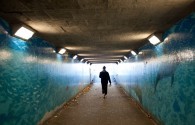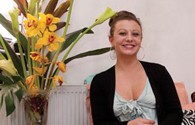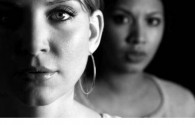
Theme
Housing and homelessness - services for women with complex needs
This theme explores the issues surrounding housing and homelessness services for women with complex needs and is being led by Expert Group member Jacqui McCluskey, Director of Policy and Communications at Homeless Link. Read the Theme Round Up here.
Although we have now moved on to other themes, you are welcome to read all the submissions below, and comment further during the campaign.
Jacqui started off by exploring what the issues are:
“Women make up around a third of the single homeless population, and in London, 11 per cent of rough sleepers. We also know that it is common for women to live in ‘hidden homeless’ situations, such as sofa surfing, staying in abusive relationships, or living in squats or crack houses.
Many issues faced by homeless people are the same regardless of gender. However, research suggests that there can be different reasons why women become homeless, and they may therefore require different support to help them rebuild their lives. A higher proportion of women than men will have had specific traumatic experiences that led to their homelessness such as domestic abuse and perhaps having their children taken into care. Consequently women who are homeless often have higher and more complex needs than men, including mental and physical health issues, substance use issues, offending histories and involvement in prostitution.
St Mungo’s peer research suggests that women want a choice of mixed or women only accommodation, with single sex provision particularly appropriate for those who have experienced abuse. There are currently only 32 emergency accommodation projects, and 27 specialist accommodation projects that are women only, and many refuges do not accommodate women with complex needs. As services close, or thresholds for accessing support are raised, vulnerable women can be left with nowhere to turn. We also hear that women struggle to find appropriate move on accommodation, young women in particular when their only option is shared mixed housing in the private rented sector.
This theme will explore how services can meet the demand for appropriate support for homeless and vulnerable women. We need your examples of good practice and innovative ideas on how we can prevent women becoming homeless and, once they become homeless, how they can be appropriately supported, including into independent housing.
We are especially keen to hear directly from women who have experienced homelessness about the gaps in provision and solutions from their experience.”
Read more from Jacqui about these issues on her blog.
Join us by showcasing your best practice and innovations
We particularly want to hear about:
- Services that meet the complexity of needs of homeless and vulnerable women, particularly those that fill a gap in provision or cater for excluded groups.
- Women’s homelessness prevention services
- Move-on housing for women
- Examples of good cross-boundary working or innovative funding for services
If you have already joined the campaign, please log in to submit evidence. If you are not already a member, please click here to register. Please submit your contributions by 31 August 2012.
See a video from Jacqui explaining a little more about the campaign.
Theme started on: 12 Jun 2012
33 Submissions
The topic ‘Housing and homelessness - services for women with complex needs’ is closed to new replies.
Internet highlights
- UK Online Casinos
- Non Gamstop Casinos UK
- Nouveaux Casinos En Ligne
- Casinos Not On Gamstop
- Casinos Not On Gamstop
- Casino Sites Not On Gamstop
- Casino Sites Not On Gamstop
- Casino En Ligne
- Non Gamstop Casino Sites UK
- Fastest Payout Online Casino
- UK Online Casinos Not On Gamstop
- Non Gamstop Casino
- Casino Online Non Aams
- Casino Online Sin Licencia España
- Casinos Sin KYC
- Reputable Non Gamstop Casinos
- Casino Sites UK
- Non Gamstop Casino UK
- Sites Not On Gamstop
- UK Casinos Not On Gamstop
- Sites Not On Gamstop
- Sites Not On Gamstop
- Lista Casino Non Aams
- Casinos Not On Gamstop
- Casinos Not On Gamstop
- Casino Non Aams
- Meilleur Site Casino En Ligne Belgique
- Meilleur Casino En Ligne Belgique
- Migliori Casino Online
- Casino Visa
- Sites De Paris Sportifs
- คาสิโนคริปโตไทย
- 카지노 사이트 추천
- Bookmaker Non Aams
- Meilleur Casino En Ligne
- Casino Bitcoin
- Casino En Ligne
- Meilleur Casino En Ligne
- Casino Crypto



